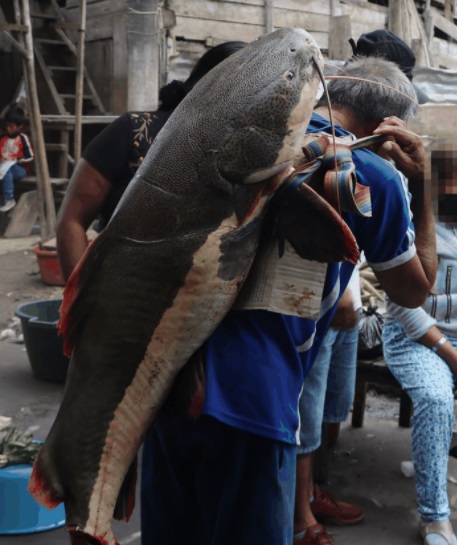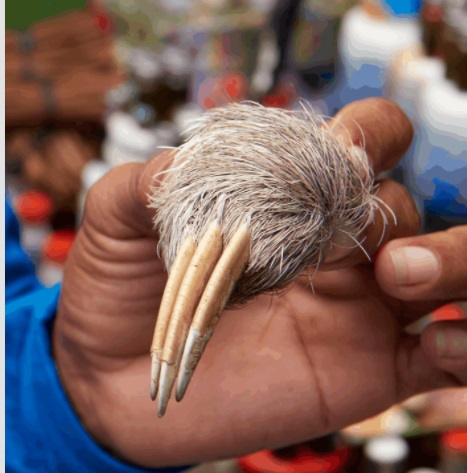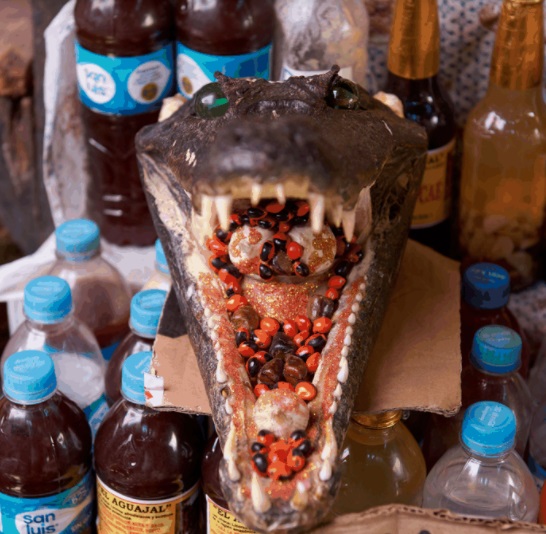After almost 2 years, Peru's largest wildlife market reopens where illegal animals and body parts and meat are sold
After the long hiatus due to the pandemic, the largest wildlife market in the Peruvian Amazon has reopened in Belén. Live animals are sold illegally here as well as unlikely natural remedies including sloth legs.
At least in some of its parts, the Belén market seems to be a place of horrors. Live wild animals are illegally sold here as well as turtle meat, leopard skin, pink dolphin genitals and sloth legs.
Fortunately, everything had stopped due to the pandemic. You will recall that in January 2020 China banned the breeding, sale and consumption of wild animals and, three months later, the World Health Organization issued guidelines requiring, among other things, the closure of all. the markets where live wild animals were sold.
Covid should have taught us something about the risks of this kind of trade. The danger that dangerous viruses could make the leap of species is more current than ever, yet, after almost two years, everything returns to the way it was before and, at least in the Belén market, it seems that the illicit trafficking in wildlife continue undisturbed.
After being closed during the pandemic and undergoing extensive renovations, the market has reopened and sales of live wild animals have resumed, as well as those of animal parts and exotic meats.
- living animals they are sold as pets or as food. People, for example, buy live yellow-footed turtles and slaughter them later. The parts of animals (jaguar teeth, sloth claws, pink dolphin genitals, etc.) are sold as traditional medicine remedies, nationally and internationally, or as a luxury souvenir.

@World Animal Protection
For example, it is believed that the sloth paws have spiritual properties and that ingesting dust scraped from the claws can help calm anger or quell gossip. Three-toed sloths, a protected species in Peru, are typically caught illegally in the jungle and killed just to get their paws or sold alive as pets.

@World Animal Protection
In this market you can find really everything, including caiman heads, adorned with glass eyeballs and decorative berries, sold as an amulet for the protection and prosperity of their owners.

@World Animal Protection
To reveal that these illegal trades are resumed is the World Animal Protection investigation, an international non-profit organization for animal welfare, which has found that the illegal sale of wild animals and their parts is again active in much of the market.
Investigators found sliced caimans lying in busy areas, live parrots in cardboard boxes, and wild venison for sale alongside fruit and vegetables.
As biologist Neil D'Cruze, head of research and policy at World Animal Protection, said:
It's pretty shocking to see, especially after COVID-19. Despite the apparent best intentions of local authorities, the illegal wildlife trade is truly coming to life throughout the Belén market, largely in full view of the public. It is a real concern that such an important - and some would say infamous - wildlife market such as Belén, which was already on the radar of UN agencies in terms of calling for aid and development support, has been allowed to reopen without it being took steps to address the illegality of the wildlife trade. It was a missed opportunity.
Incidentally, the World Animal Protection investigation found no evidence that Belén's market review plan included cracking down on the wildlife trade, despite growing health concerns and the fact that one of the targets the key to the restructuring of the market was precisely to protect health.
Follow us on Telegram | Instagram | Facebook | TikTok | Youtube
Fonte: World Animal Protection / National Geographic
Read also:
- Not just wet markets, wild animal farms in southern China are also at the root of the pandemic
- Brussels like China: illegally sold protected wild animals in markets
- Wet Chinese markets are still open: nine months after the Covid-19 pandemic, nothing has changed
- Wet market: two years before Covid-19, nearly 50 live animals were on sale in Wuhan


























